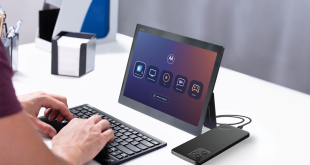Microsoft has defended its continued support for IE6, the eight-year-old browser that a growing number of web developers insist should be mothballed.
The global software giant said it will, in fact, be supporting the browser until 2014 – some four years beyond initial projections – despite stating that it would prefer users to upgrade to the latest edition of its browser, IE8.
At the centre of the IE6 row is web developers’ growing frustration that they have to develop product – websites, flash games, portals, etc – with all browsers in mind.
Though the likes of IE8, Firefox and Safari tend to be suitable for modern web development, creating product with IE6 in mind means that extra work needs to be done, and even then, IE6 slows down many web applications despite being optimised.
Many web developers believe that this kind of extra work is becoming an unnecessary burden.
An online petition has been set up to lobby Microsoft into migrating its customers to newer IE browsers.
A statement on the petition group’s website reads:
"Microsoft Internet Explorer 6 was released in late 2001. For its time, it was a decent browser, but in 2009, it is still in use by a significant portion of the web population, and its time is now up."
Around 20 per cent of people still use IE6 to browse the net, according to monitoring groups. This fact has become the basis for Microsoft’s retort to the petition group.
"It’s hard to be cavalier in this economy and say ‘oh it’s been around for so long they need to upgrade,’" said Amy Barzdukas, Microsoft’s general manager for Internet Explorer.
Microsoft’s IE chief Dean Hachamovitch echoed Barzdukas’s sentiment:
“For technology enthusiasts, this topic seems simple. Enthusiasts install new (often unfinished or beta) software all the time. Scores of posts on this site and others describe specific benefits of upgrading.
“As a browser supplier, we want people to switch to the latest version of IE for security, performance, interoperability, and more.
"So, if all of the ‘individual enthusiasts’ want Windows XP machines upgraded from IE6, and the supplier of IE6 wants them upgraded, what’s the issue?
“The choice to upgrade software on a PC,” he said, “belongs to the person responsible for the PC.”
Hachamovitch added that, while it’s understandable that groups are calling for mass-migration to IE8, many PCs don’t belong to individual enthusiasts, but organisations.
“The people in these organisations responsible for these machines decide what to do with them. These people are professionally responsible for keeping tens or hundreds or thousands of PCs working on budget,” he said.
“The backdrop might be a factory floor or hospital ward or school lab or government organization, each with its own business applications. For these folks, the cost of the software isn’t just the purchase price, but the cost of deploying, maintaining, and making sure it works with their IT infrastructure.
“As much as they (or site developers, or Microsoft or anyone else) want them to move to IE8 now, they see the PC software image as one part of a larger IT picture with its own cadence,” he concluded.
 PCR Tech and IT retail, distribution and vendor news
PCR Tech and IT retail, distribution and vendor news


